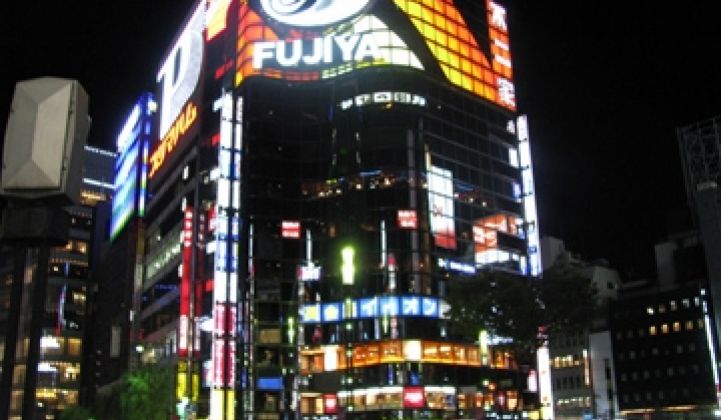Like Nissan's school of robots that operate like fish swimming together to navigate space, here's a roundup of stories from this week's Ceatec consumer electronics tradeshow.
• Why Have LED Bulbs Dropped in Price?
Last year, Toshiba's 60-watt equivalent light bulb cost about $90 and the 100-watt equivalent that could also be dimmed ran around $360. This year, Panasonic showed off a 60-watt equivalent with dimming that will cost about $44 to $55. Why the price whack?
• Next Week: A Huge Fight Over TV
The CEC wants to put energy efficiency standards on TVs. The manufacturers say the regulations will stall innovation and are out of date.
• Nissan's Robots: They're Really Fish
The automaker is discussing installing sensors in cars that allow them to detect and communicate with other cars on the road.
• The Sleeping TV, LED Lights and a Washing Machine That Sees Sweat Stains
The big manufacturers in Japan see energy efficiency as the next thing. One idea: homes that run on DC.
• OLED Lights as Jewelry?
It's a bracelet. It's a watchband. It's an OLED light. The component-maker Rohm's OLED prototypes try to circumvent the technology's problems by emphasizing style
• The Artistic Solar Panel
Japan's TDK is experimenting with solar dyes and some unusual ways to wire them up.
• An LCD Screen That Uses 10 Miliwatts
This new phone contains an exterior LCD, called Memory LCD, that uses 10 miliwatts of power in standby. You can show pictures on it, get news briefs or use it as a watch.
• Power Handwriting
When you write with the stylus on Hokuriko's piezoelectric panel, the kinetic energy produced from writing is converted to electricity and fed back into the system.
• Ceatec Slideshow: OLEDs, Home Fuel Cells and the 3D TV
In this gallery we present some of the best displays in energy efficiency at this year's Ceatec.



